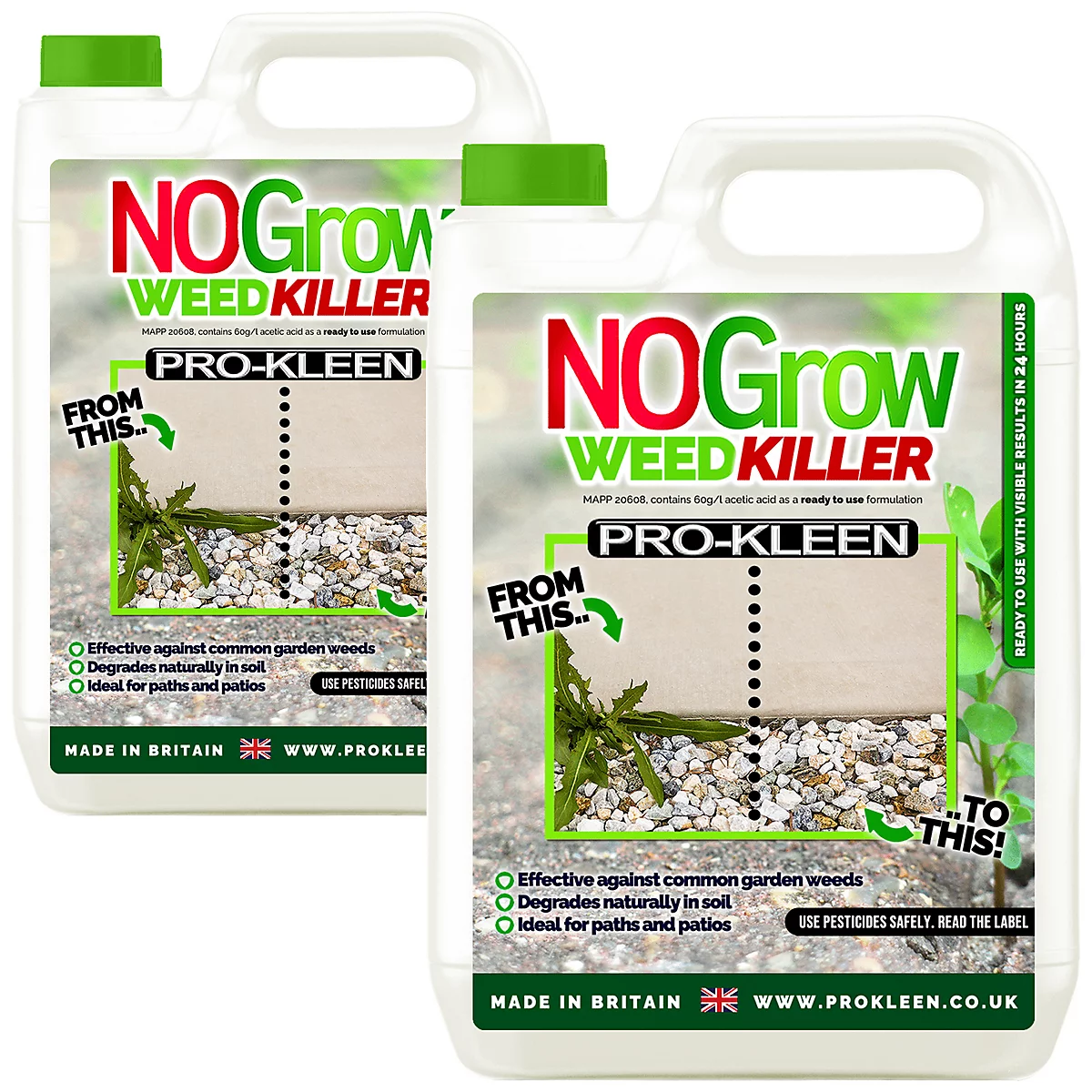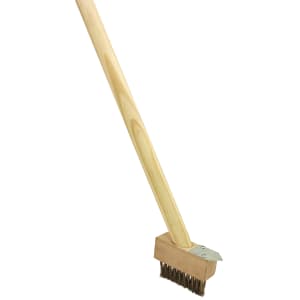This weed removal hack is going viral on TikTok – but garden experts warn it will do more harm than good
Salt and vinegar may work for your chippy order, but it should go nowhere near your patio paving slabs
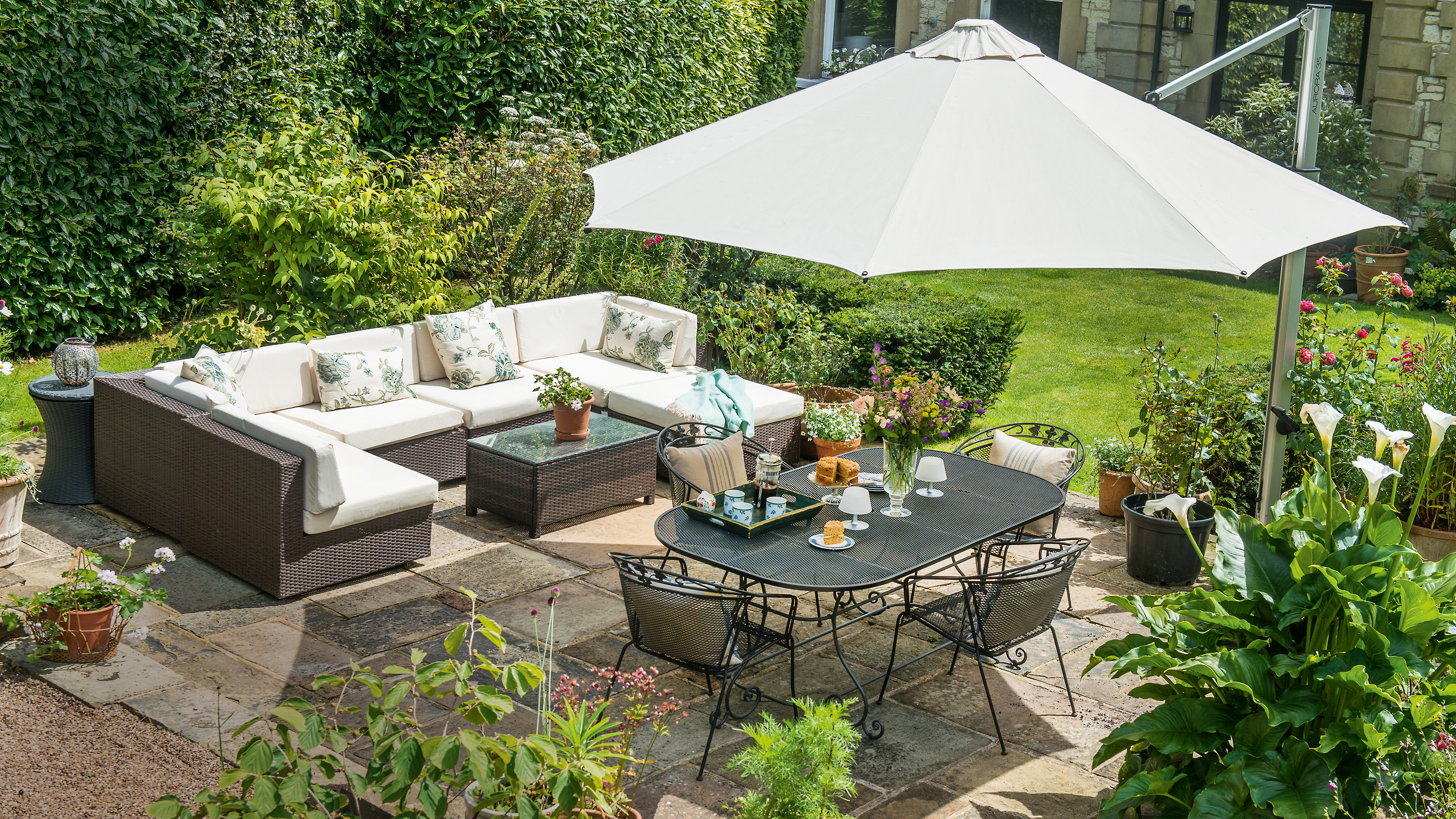

Salt and vinegar may make a delicious combination on crisps or your chippy order, but experts say you should never use it to de-weed your patio paving slabs.
Despite there being plenty of tested ways to remove weeds from a patio, we’re all partial to a DIY hack, especially if it promises to do the job cheaper. Recently, TikTok hacks claiming to banish weeds from patio stones using a mixture of salt and vinegar have gone viral, racking up hundreds of thousands of views.
But garden experts warn that salt and vinegar are a corrosive mix that can wear down and damage your slabs, especially if your patio is made from a porous paving material. This is everything you need to know.
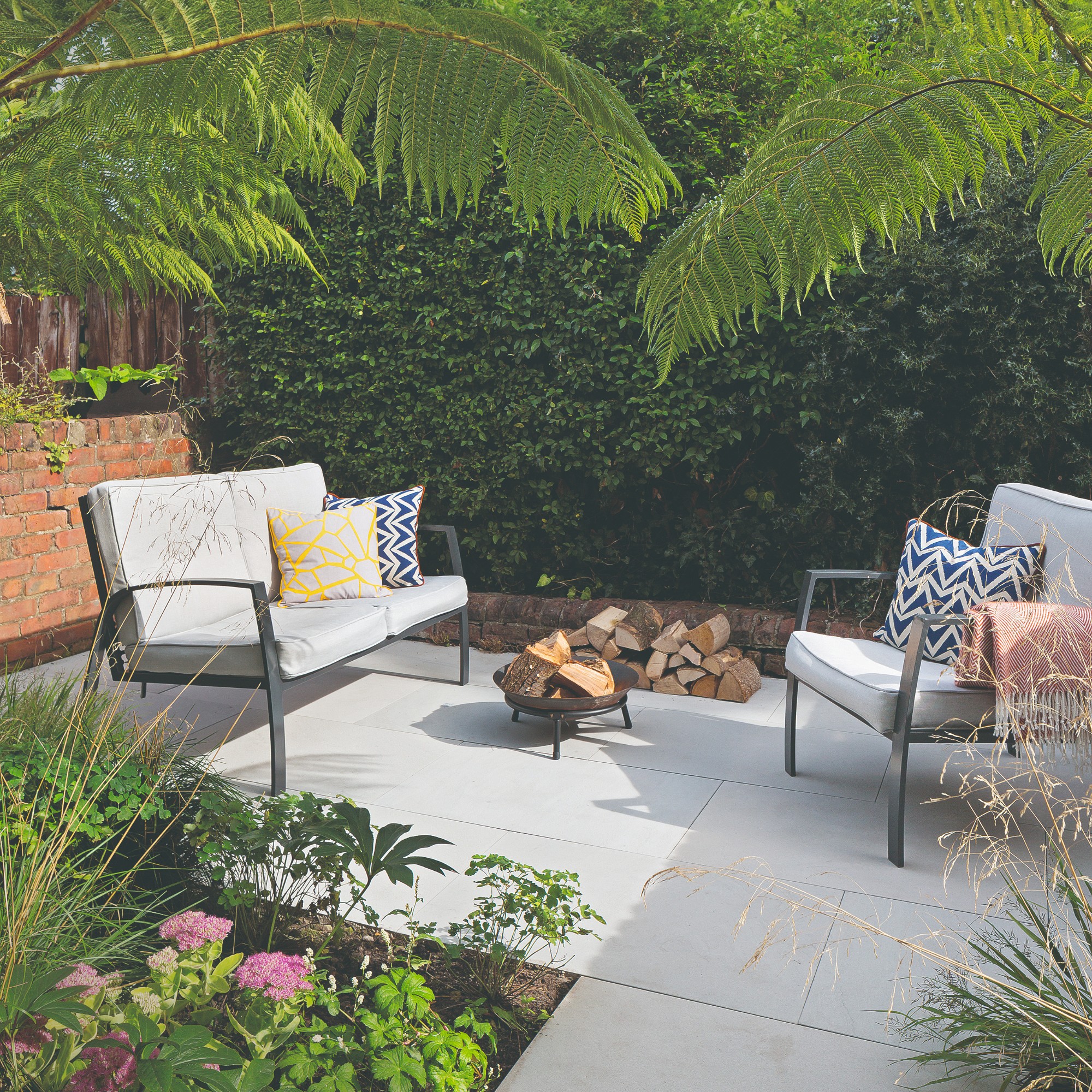
Why you should avoid the TikTok salt and vinegar weed hack
The TikTok hack consists of making a spray from salt, vinegar and dish soap, and spraying it on your paving stones. It claims to kill weeds in just an hour, but this can do far more harm than good.
‘When salt or sodium chloride comes in contact with paving products, it can accelerate the breakdown, especially if the product has a porous mix design. Salt gets into cracks, and when it absorbs moisture, the material expands and contracts, leading to cracking and degradation over time,’ explains Trevor Knight, landscaper and patio and driveway expert at Marshalls Plc.
‘We have a lot of rain in the UK, so excessive moisture is inevitable. Not only this, but salt contributes to rapid corrosion if any metal elements are involved in your driveway or if you have metal components such as rebar reinforcing bars below the surface; this will speed up rust formation if the salts come into direct contact.’

Not only can salt damage your paving and patio slabs, but vinegar is acidic, which can cause erosion for paving materials such as concrete, sandstone or limestone - making them one of many things you should never clean with vinegar.
Get the Ideal Home Newsletter
Sign up to our newsletter for style and decor inspiration, house makeovers, project advice and more.
‘Vinegar - particularly white distilled vinegar - can be equally problematic. While it’s acidic enough to burn back leaves and stems, it doesn’t always reach the roots, meaning the weeds can regrow. Acidic substances and soft stones also really don’t mix, especially natural materials like limestone or sandstone, where vinegar can etch the surface, dull the colour, and lead to uneven fading,’ explains Andrew Haydon, DIY Expert at Simply Plastics.
What are the better methods to remove weeds from patios?
On the whole, your patio slabs and this salt and vinegar concoction should never mix, and you’re much better off using safe methods to remove weeds from a patio.
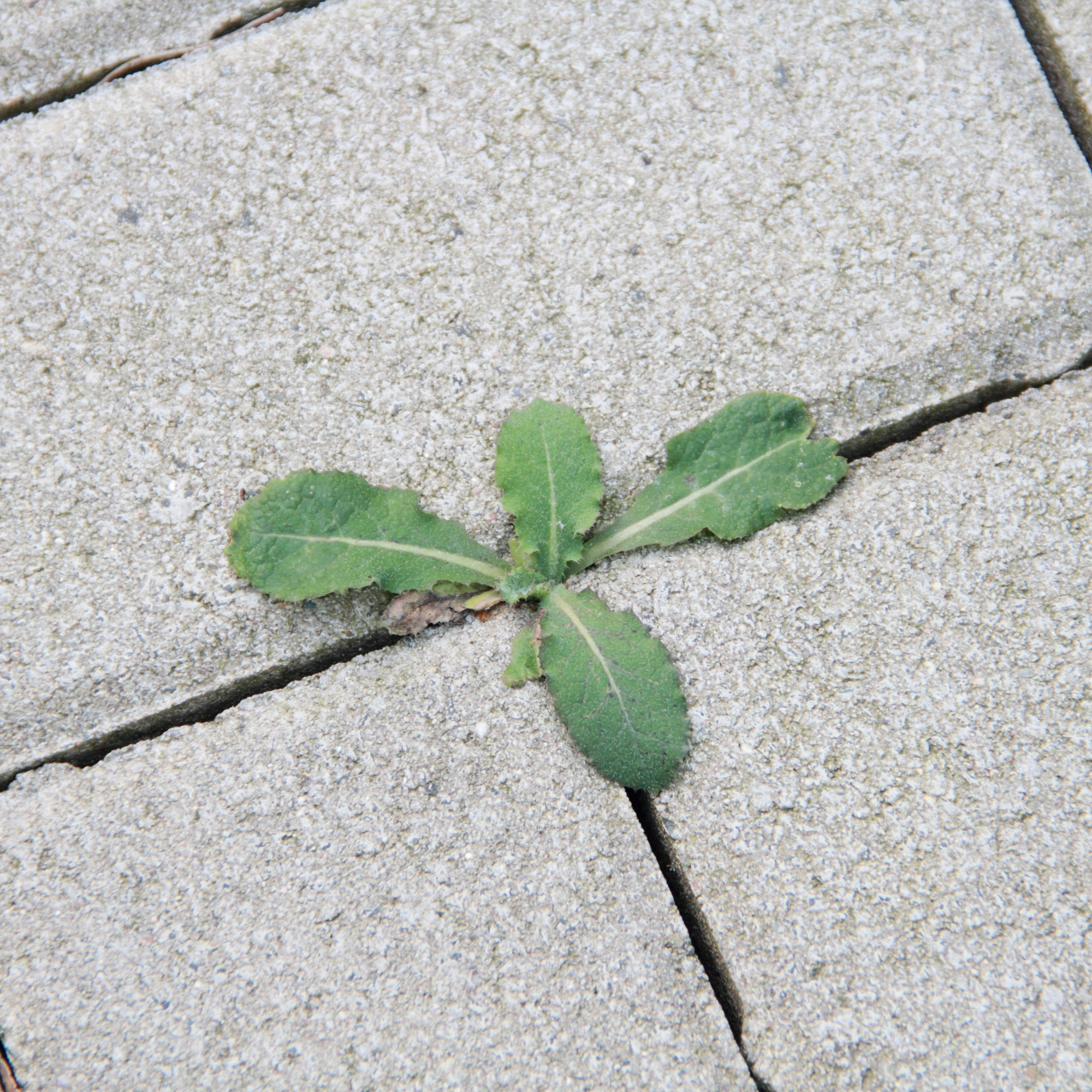
‘If you're looking for a safer, equally budget-friendly alternative, boiling water is one of the most effective natural methods of dealing with weeds. It’s ideal for young or shallow-rooted weeds, especially those growing in between patio slabs, gravel paths, or driveways - just boil a kettle and pour directly onto the weeds, focusing on the base and root area,’ says Andrew.
‘The intense heat scalds the plant, damaging its structure and making it much easier to pull out once it cools. You also don’t need to worry about any leftover residue, there’s zero damage to your patio, and it won’t affect the surrounding soil.’
If you’re looking for quick and effective ways to remove weeds and clean your patio, these are some more products we recommend.
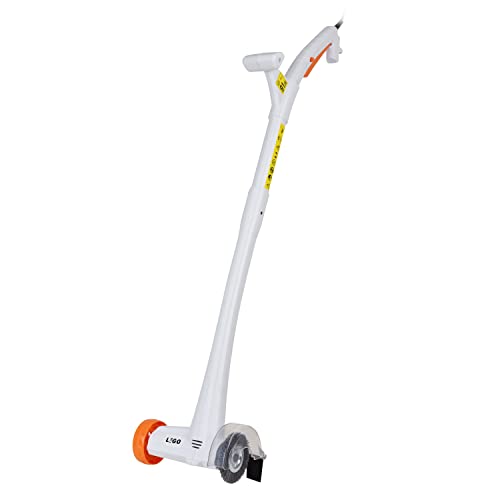
This electric sweeper rewuires no chemicals, gas or oil. It has a steel brush to sweep moss and weeds out your patio and a nylon brush to clean more sensitive areas.

Kezia Reynolds joined the Ideal Home team as News Writer in September 2024. After graduating from City, University of London in 2022 with a bachelor’s degree in journalism, Kezia kicked off her career spending two years working on women’s weekly magazines. She is always on the lookout for the latest home news, finding you the best deals and trends - so you don’t miss a thing!
You must confirm your public display name before commenting
Please logout and then login again, you will then be prompted to enter your display name.
-
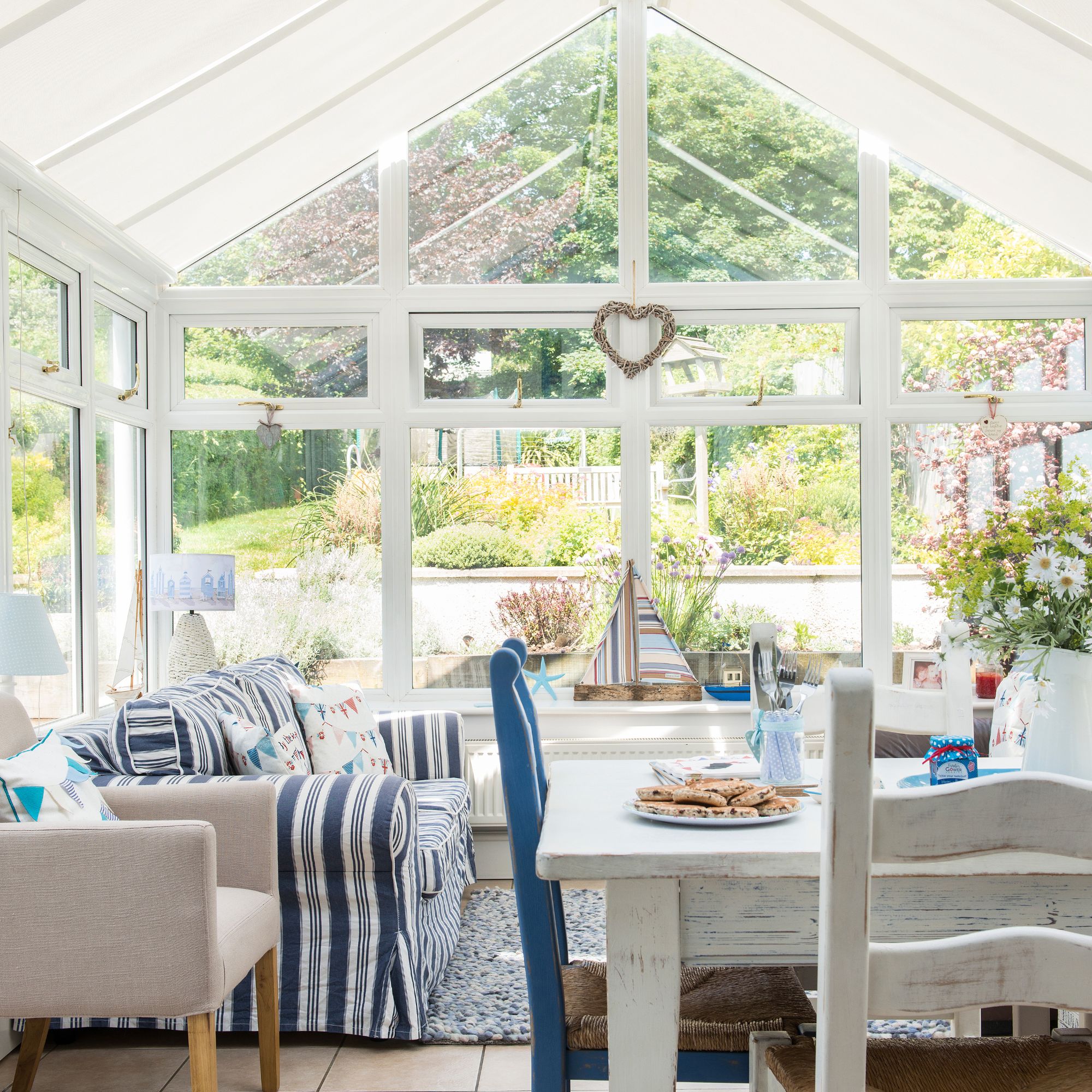 Is it cheaper to build an extension or a conservatory?
Is it cheaper to build an extension or a conservatory?One is usually cheaper, but it turns out that's not always the case
By Amy Reeves
-
 Can you add an island to an existing kitchen? Yes, but these are the 3 considerations to be aware of
Can you add an island to an existing kitchen? Yes, but these are the 3 considerations to be aware ofAdding an island is easier than you might think
By Holly Cockburn
-
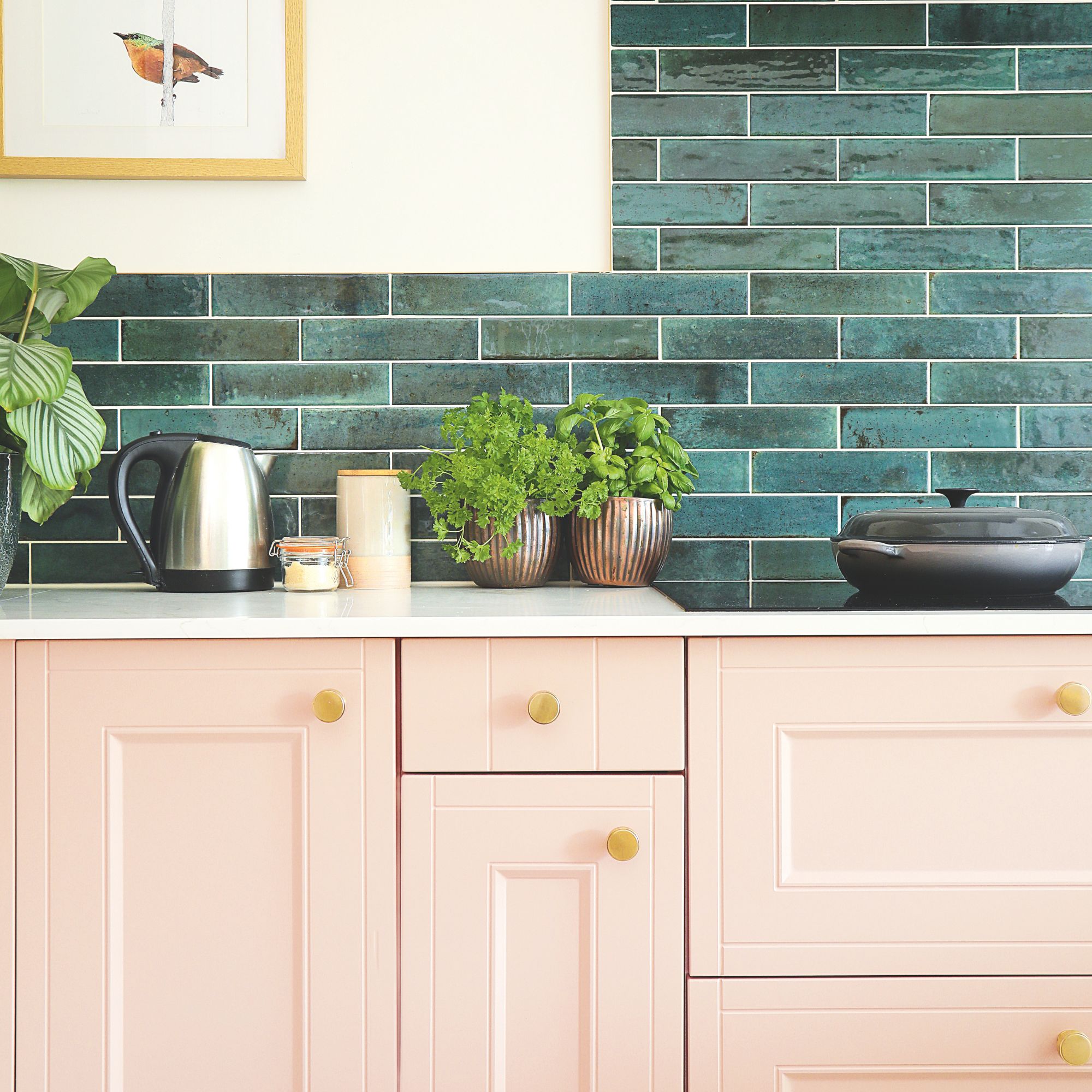 Think your mop is just for cleaning your floors? Think again — these are the 7 things you should be cleaning with a mop
Think your mop is just for cleaning your floors? Think again — these are the 7 things you should be cleaning with a mopThis trusty tool is more adaptable than you might realise
By Rebecca Lawton
